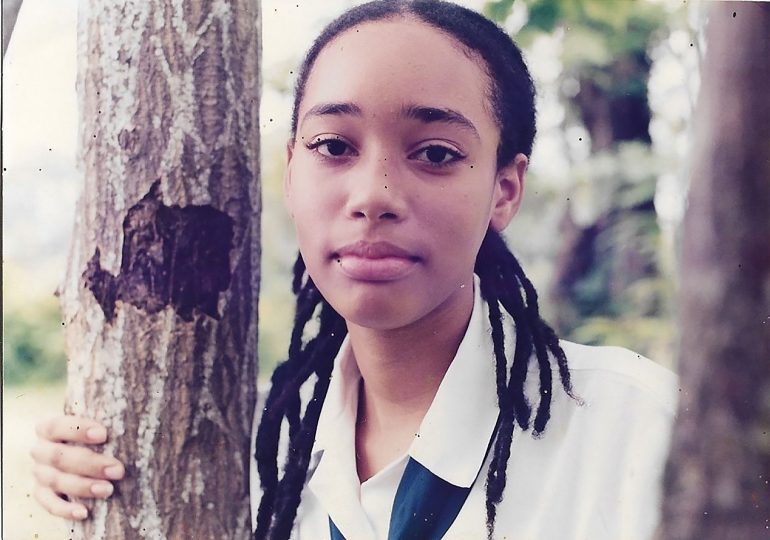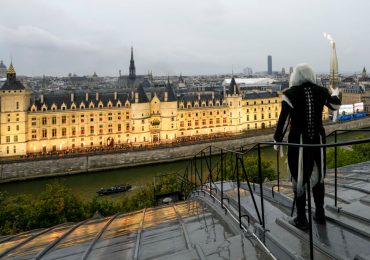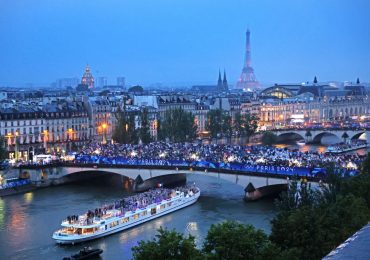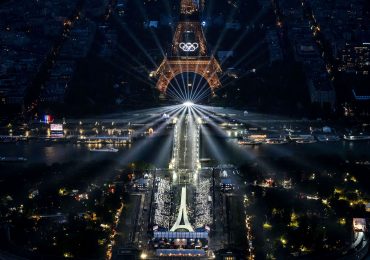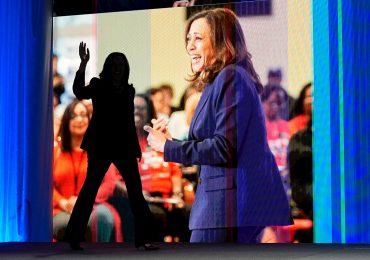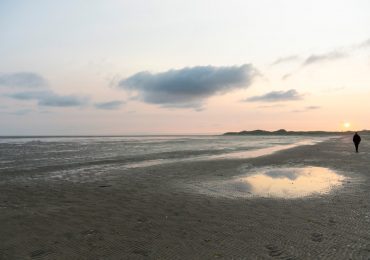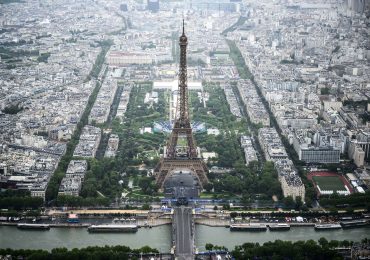Recently, while shuffling through a stack of old family pictures, a strange young girl’s face appeared, and startled me. There she was—a wide-eyed teenager with a dark cornucopia of dreadlocks falling around her shoulders, her mouth stitched into silence, searching the water for meaning. I studied her gaze, suddenly dizzy with the memory of a promise I’d made to myself long ago: to burn every picture of myself from this time once I was older, to leave nothing of this version of myself behind. To cut the throat of the daughter my father wanted me to be. To sever those roots for good.
[time-brightcove not-tgx=”true”]
I grew up in a strict Rastafari household in Jamaica, where so much of my life was categorized by the weight of my hair: the world before I had dreadlocks and the world after. Dreadlocks were never my choice; it was a decree handed down by my father. For him, and for the Rastafari, what grew upon my head was supposed to be most holy. And so we let our dreadlocks grow free as wildflowers in my family. I was always told not to touch my hair; combing, brushing, or twisting my dreadlocks was strictly forbidden. Our locks were to grow naturally, my father said, as Jah intended. Even thinking of cutting them was a cardinal sin. To the Rastafari, dreadlocks are a sacred marker of one’s devotion to Jah, and a shield against Babylon, their name for the ruinous temptation of the western world and the shackles of colonialism, capitalism, and Christianity. So, I wore my dreadlocks as part of my armor.
Except, it didn’t feel like armor. The first time I left my house after my mother had knotted my hair into dreadlocks, I was wracked by the catcalls of men in the street, wailing out “Empress!,” a patois term for a Rastawoman. I was only eight years old. When I arrived at school, I was immediately hounded by a student who chased after me and taunted, “Lice is killing the Rasta,” a common insult in Jamaica in the 1990s, co-opting the melody of a popular reggae song. Rasta children had not been integrated into Jamaican public schools until the 1980s, and more than a decade later, my brother, my sisters, and I were still the only Rastafari children attending school in the parish. For the first time in our lives, though certainly not the last, we felt the burden of what we would be tasked to carry for the next decade, whenever we went outside our house. All day, our classmates gawked. Their parents gazed. Even my teachers whispered about us and sneered.
Most foreigners might think the Rastafari movement is the thing that most defines Jamaica, but Rastas make up roughly only 1% of the Jamaican population, numbering less than a 100 thousand in a deeply Christian country of almost 3 million. For most of my life, my family were the only Rastas in our neighborhood, the only Rastas in the supermarket, the only Rastas at the beach. Soon my siblings and I grew used to this lonely struggle the same way we wore the crucible of hair, heavy and inescapable.
“Can you even see with those…things in your face?” one of my high school teachers asked me once, with scorn. Her mouth was permanently downturned at the sight of me. While I wore my dreadlocks, I wore my father’s mark. They were the primary sign of my purity and my father’s message to Babylon: this evidence of my righteousness was also a sign of his. Everywhere I went, I was an outcast. Eventually I learned to bear the disdain at school and the heckling in the street every time I left the house.
I spent most of my girlhood under a kind of silence. I kept most of my thoughts and dreams, along with my curiosity, pressed like secret petals between the pages of my notebook. I was taught from a young age that a woman’s obedience was a mark of her worthiness. Be chaste. Be pure. Be humble. The quieter the daughter, the closer to Jah. My sisters, my mother, and I adhered to the Rastafari decrees of reverence: we were forbidden from wearing pants, our arms and knees were to be kept covered, we could wear no jewelry, no makeup, no adornments. We would keep our hair in dreadlocks, and we would express no opinions. For a time, we were—or at least we appeared to be—the perfect Rasta family. I tried my best to walk this path, to be the daughter my father wanted me to be. But as I grew older, my silence deepened, and so did my questions.
Soon enough, my questioning hardened into doubt. I began to scrutinize the rules, which were different for Rasta bredren than for Rasta sistren. I watched my brother flourish in the freedom of his teenage years as my sisters and I withered into recluses, forbidden from leaving the house, where we were always under my father’s watchful eye. Between the pages of my notebook, I began to imagine a world beyond the one my father had constructed for me. I began to imagine who I would become if I could choose my own future. Then finally, I made my choice.
At 19 years old, between the warm hands of my mother, I committed the first sin. What I had spent years dreaming of, as I longed for my own independence. I knelt under the blades of scissors for the first time since I was born, and I cut my dreadlocks. My father didn’t speak to me for a year. We lived in the same house and he looked through me like a ghost.
I had become Babylon.
With this began my family’s unrooting; I had pulled at something that soon came swiftly undone in my hands, parched roots yanked from earth. My two sisters, stirred by my action, decided to cut their dreadlocks. Not long after, my mother, who had been growing her dreadlocks since she was nineteen years old, when she first met my father, also cut her dreadlocks. For months, my father’s rage consumed our house, and burned all our days to ash. I weathered his fury for years as the ungodly daughter, the ruin of his perfect Rastafari family. I knew I’d eventually have to leave home if I were to ever survive it.
I look into the pallid face of the girl in the photograph again, and I still feel her doubts, remembering how badly she wished to erase this version of herself from the world. How badly she wanted to burn this story. To forget. But I didn’t burn it. I’ve kept everything, as reminders of my Rastafari roots, of my unbelonging. Of my becoming. Though I have left so much of Rastafari behind, so much of it still remains with me, and I treasure the woman the fire made.
More than a decade has passed since I left home for good. But I will never be lost, as long as I remember what my mother taught me about our sea: If I listened to the water to hear the history of the waves, I would always find my way back.
Leave a comment
